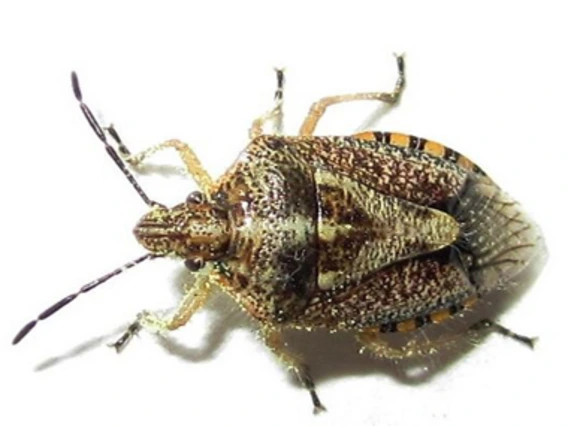
African Cluster Bug
African cluster bug (Agonoscelis puberula)
True bug; found on horehound plant. No management required.
Photo courtesy of BugGuide.net
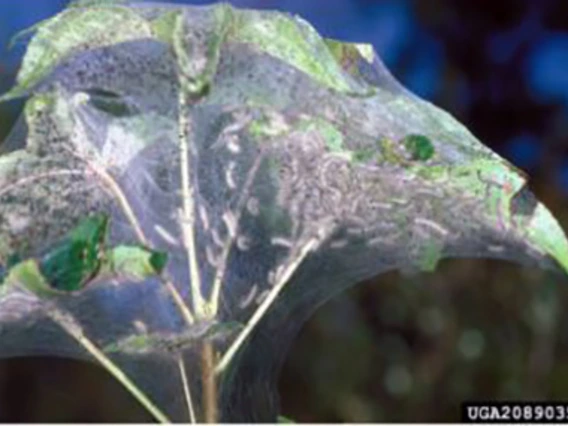
Fall Webworm
Fall Webworm - usually seen in late summer/September
https://extension.arizona.edu/sites/extension.arizona.edu/files/pubs/az…
Photo credit: Lacy L. Hyche, Auburn University, forestryimages.org
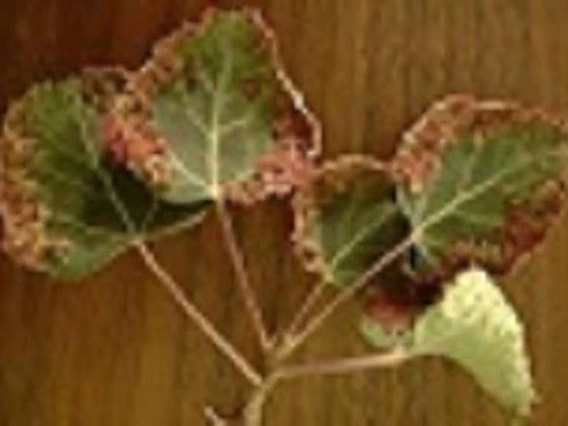
Aspen Blister Mite
Aspen blister mite
Cosmetic damage; no management needed.
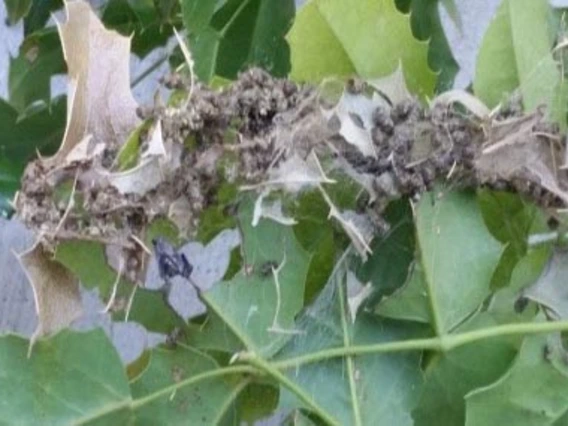
Barberry Webworm
Barberry webworm (Omphalocera dentosa)
Frequents barberry and mahonia plants. Remove stems with webbing.
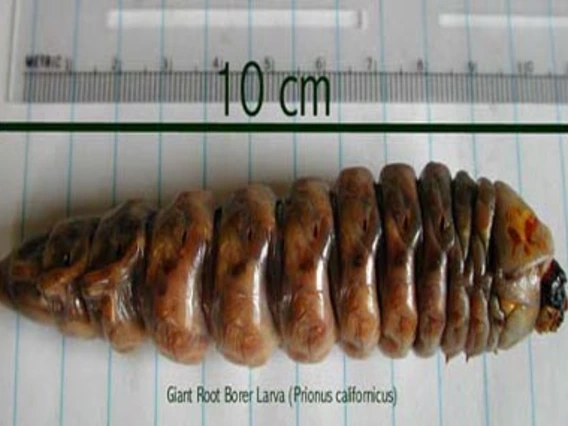
California Root Borer
California root borer larva (Prionus Californicus)
Cream colored if not old; insecticides ineffective.
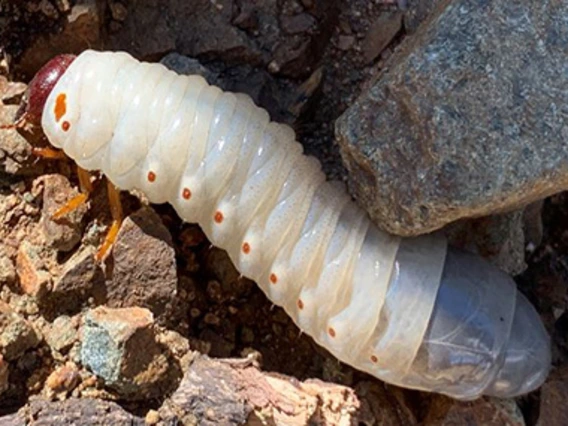
California Root Borer
California root borer larva (Prionus Californicus)
Species of insect in the longhorn beetle family (Cerambycidae)
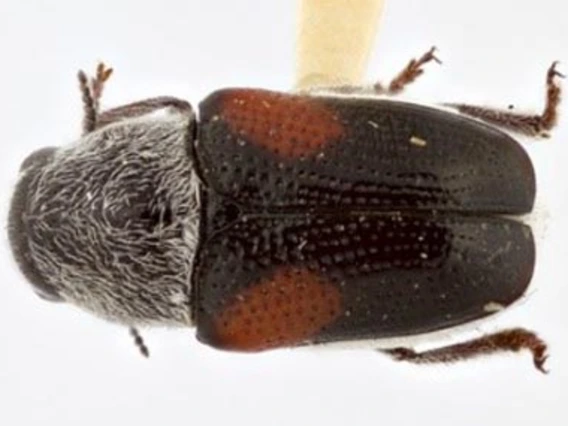
Leaf Beetle
Leaf beetle (Coleorozena)
Use "Sevin" if infestation is severe.
Photo courtesy of US Forestry
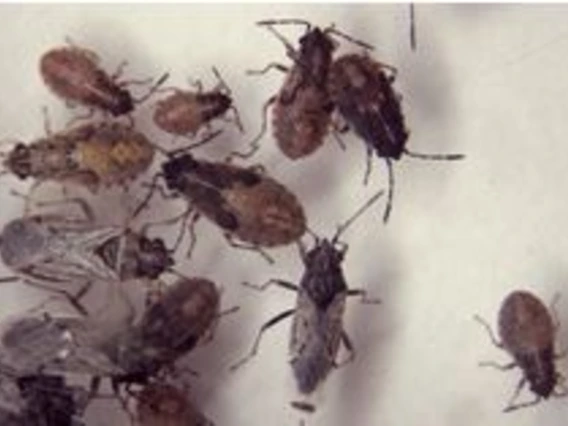
False Chinch Bugs
False chinch bugs (Nysius raphanus) - can be extremely abundant
https://extension.colostate.edu/topic-areas/insects/false-chinch-bugs-5…
Ptoto: Whitney Cranshaw, Colorado State University, Bugwood.org
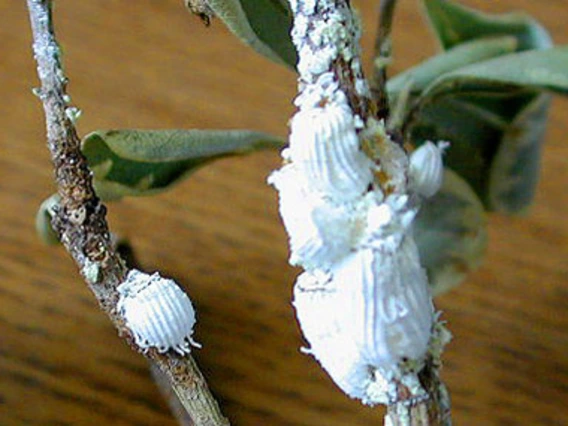
Cottony Cushion Scale
Cottony cushion scale (Icerya purchasi)
Natural predators usually keep it in check.
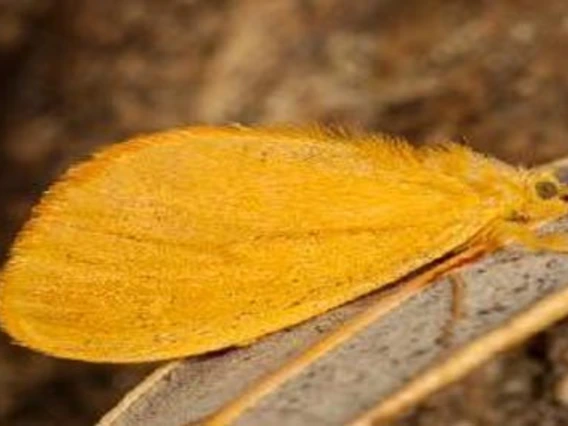
Dalcerides Ingenita Moth
Dalcerides ingenita moth
Emory oak and point leaf manzanita are larvae host plants; no management for moth; BT for larvae.
Photo courtesy of: mothphotographersgroup.msstate.edu
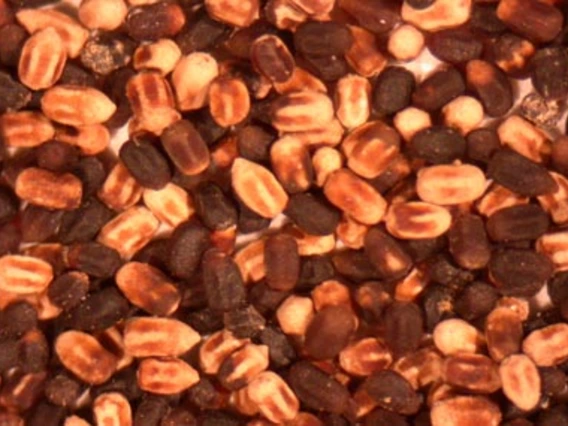
Drywood Termite Frass
Drywood termite frass
Call exterminator.
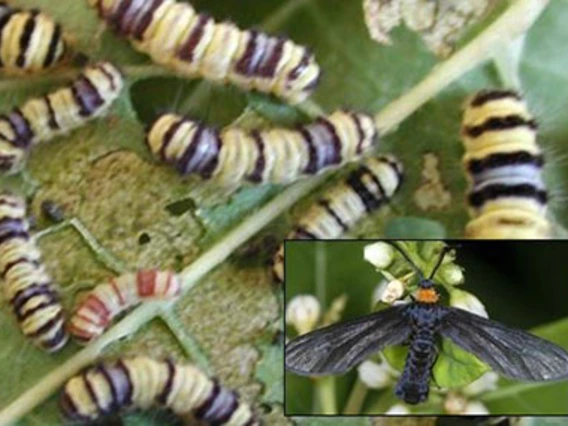
Grape Leaf Skeletonizer
Grape leaf skeletonizer (Harrisina brillians)
Don't touch with hands; can cause painful welts. Manage with BT.
More information
Moth photo courtesy of David Cappaert, Bugwood.org
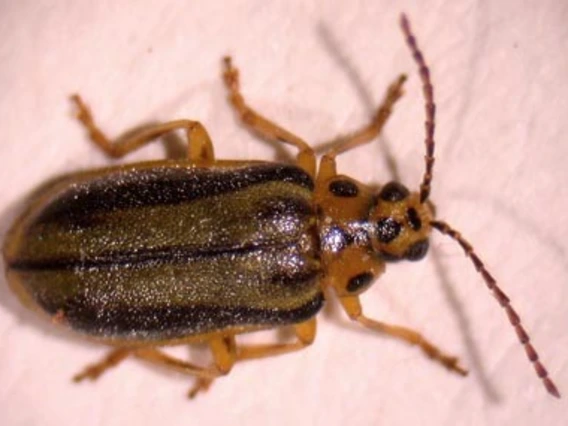
Elm Leaf Beetle
Elm leaf beetle
Spray wide band of bark around trunk of tree w/ carbaryl in spring.
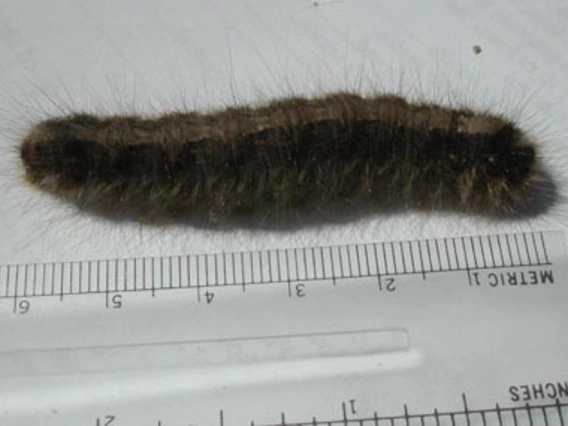
Gloveria
Gloveria
Comes out at night; eats junipers; hand pick with gloves; BT.
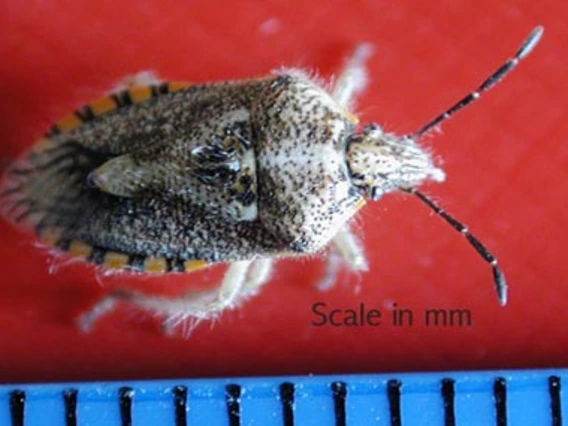
Hairy Stink Bug
Hairy Stink Bug (Pentatomid trichopepla sp.)
Hand remove or vacuum; carbaryl or malathion if serious problem.
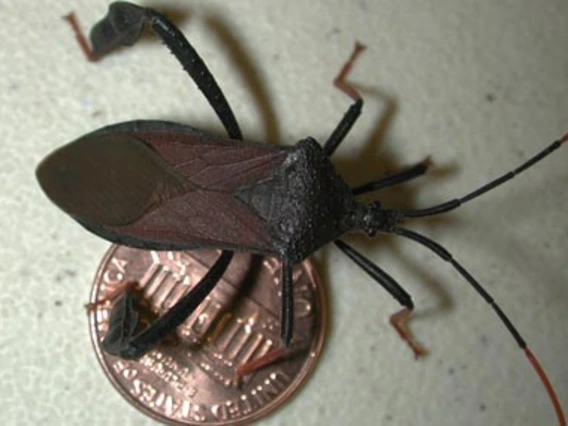
Leaf Footed Bug
Leaf footed bug (Leptoglossus phyllopus)
Hand pick; "Sevin".
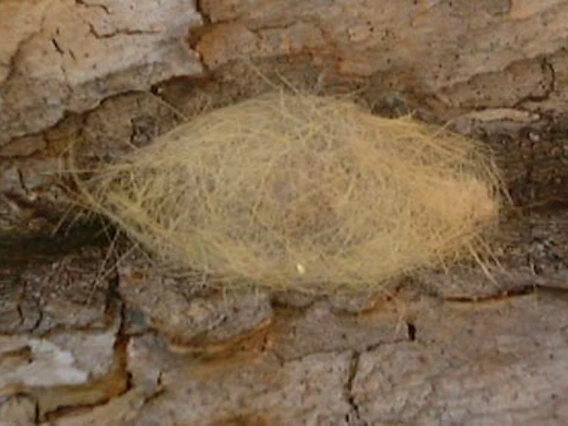
Sycamore Tussock Moth Cocoon
Sycamore Tussock Moth cocoon (Halysidota harrisii)
Remove with tweezers; wear gloves; insecticides impractical.
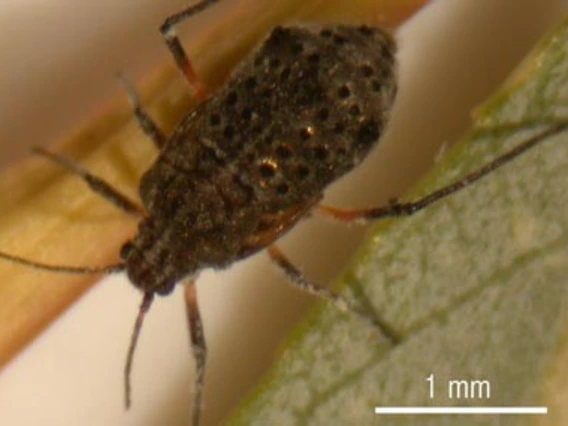
Giant Willow Aphid
Giant willow aphid (Tuberolachnus salignus)
Spray with high pressure hose or soapy solution.
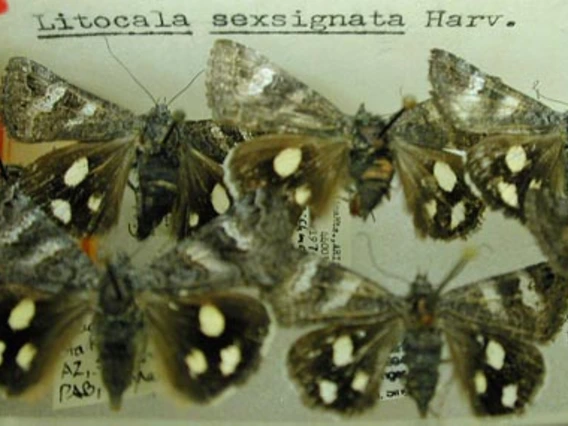
Litocala Sexsignata Moth
Moth - (Litocala sexsignata)
Occasionally seen in large masses; feed on Quercus (oak); no management needed.
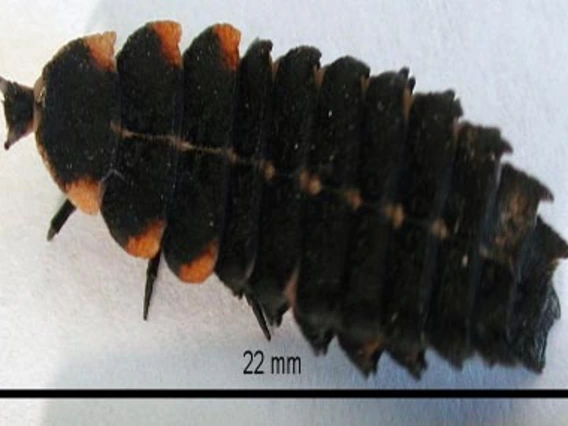
Lycid Beetle Larva
Lycid beetle larva
No known damage; no management needed.
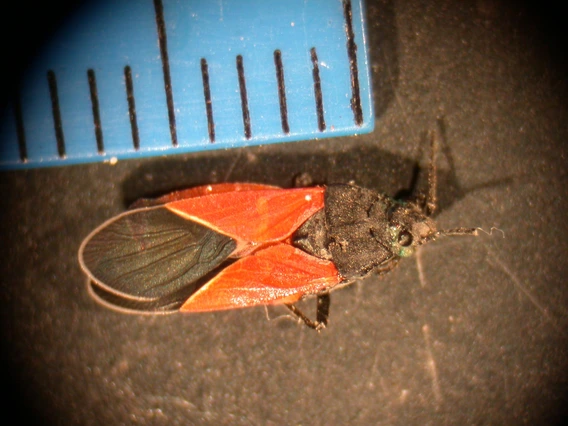
Seed Bug
Seed bug (Melanopterus belfragei)
No management needed.
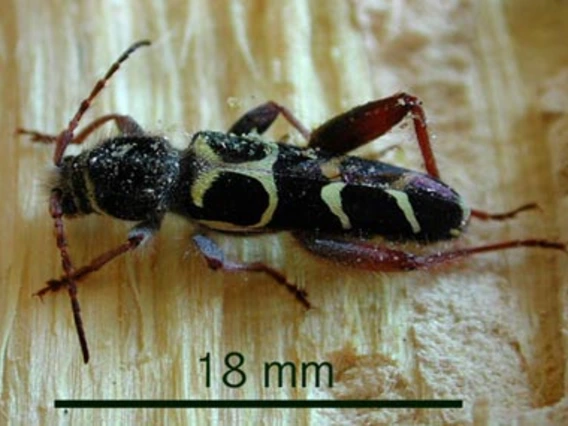
Banded Ash Borer
Banded ash borer (Neoclytus caprea)
Colonize dying and dead ash and pecan wood; will not colonize dried or structural lumber.
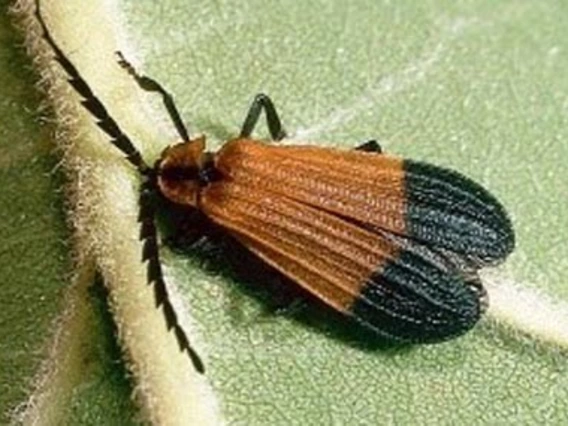
Net-winged Beetle
Net-winged beetle (Calopteron terminale)
No management needed.
Photo: Forestry Images, Kansas Dept of Ag.
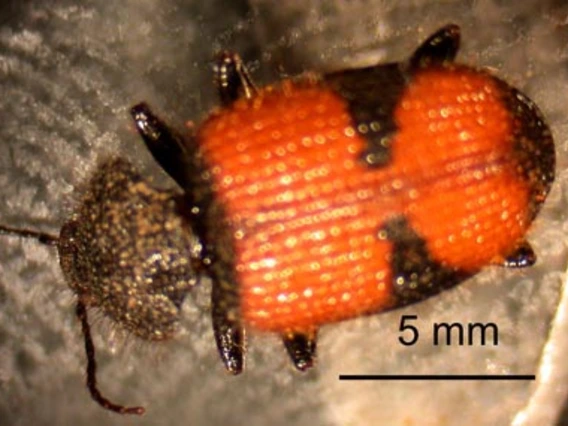
Hairy Ground Beetle
Hairy Ground Beetle (Panagaeus sallei)
Most likely a predator; no management needed.
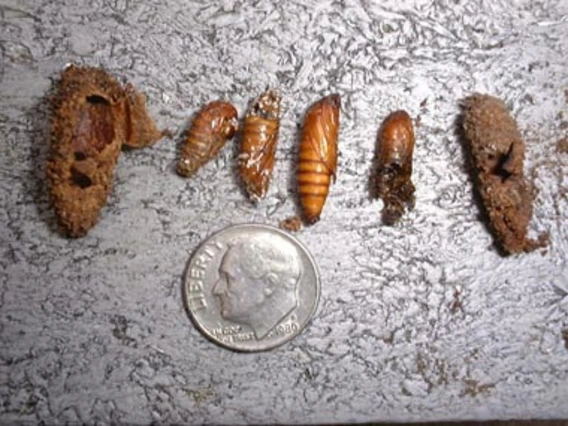
Peach Tree Borer Larvae
Peach Tree Borer larvae (Synanthedon exitiosa)
Dig out larva with pocket knife; for heavy infestations, insecticides or parasitic nematodes are effective during early larval stages; white paint on bark at base of tree helps seal cracks where female moths lay eggs.
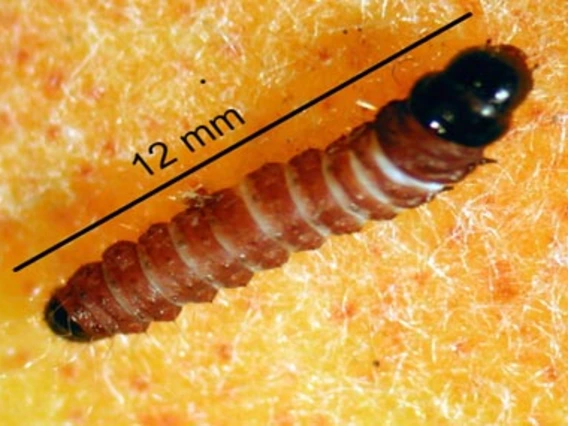
Peach Twig Borer
Peach Twig Borer (Anarsia lineatella)
Larvae enter fruit at stem end. Management: BT during bloom time; disrupt mating with pheromones; has multiple natural enemies.
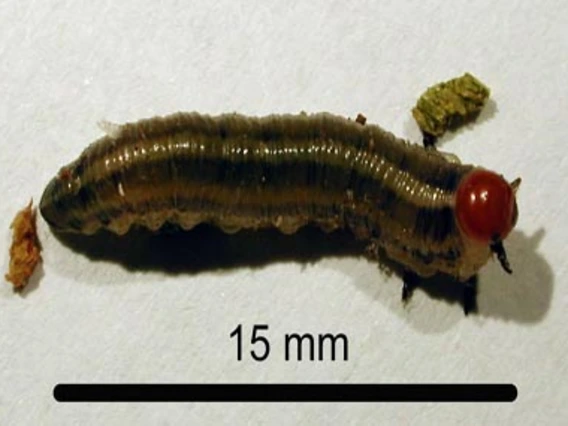
Pine Sawfly Larva
Pine sawfly larva Can quickly defoliate tree; handpick; shake off; prune from tree; insecticidal soap; insecticides (ingredients such as: acephate, bifenthrin, Zeta-Cypermethrin, permethrin).
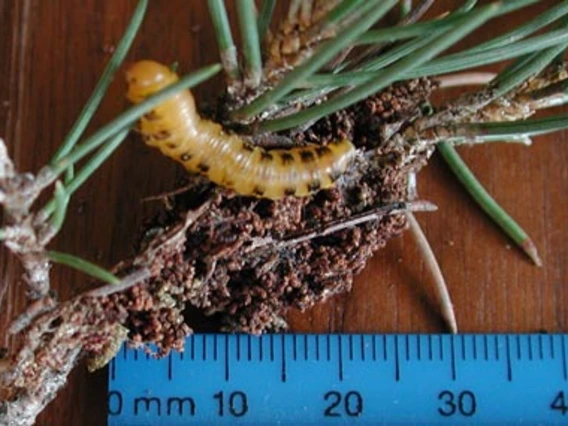
Pinyon Webworm
Pinion webworm
Prune & destroy infested portion of branches while webs are small. Remove large webs with a stick or pole w/ nail inserted crosswise – twist pole after insertion into web – remove and bag or burn. Only use insecticide sprays (BT, Zeta-Cypermethrin, acephate) if natural predators (wasps, birds, stink bugs, parasitic flies) are not present.
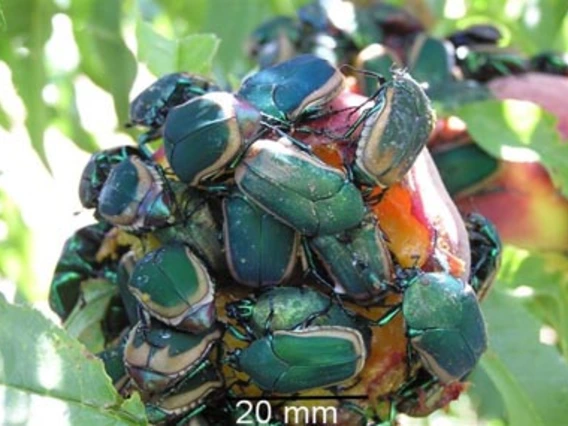
Green Fruit Beetles
Green Fruit Beetle (aka fig beetle) (Cotinis mutabilis)
Insecticides not effective on adults.
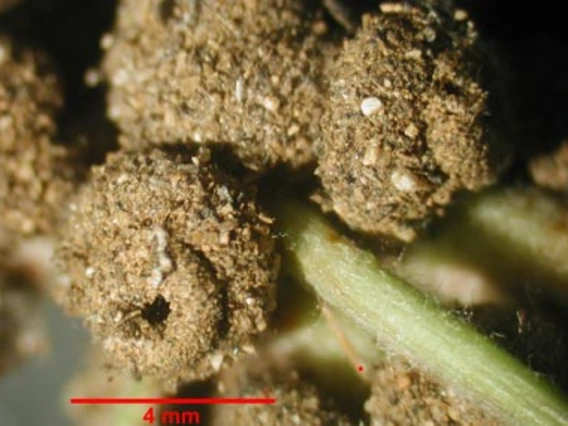
Snailcase Bagworm
Snailcase bagworm
Apply carbaryl dust, kaolin clay dust, or diatomaceous earth where feeding is occurring.
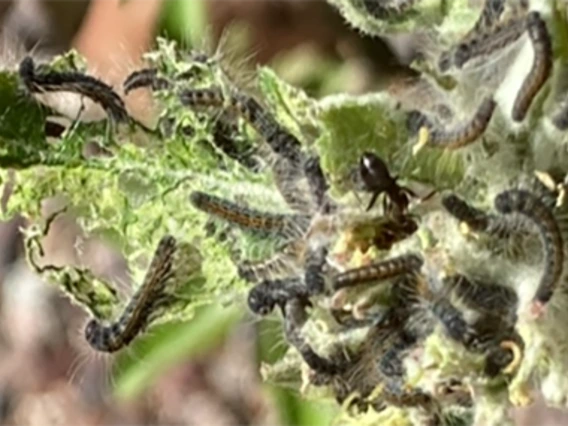
Tent Caterpillar
Tent caterpillar - usually seen in late spring/summer
Hand remove or use high pressure hose; primarily a nuisance and will not kill tree.
Photo by Ans van Egmond (Prescott Help Desk)
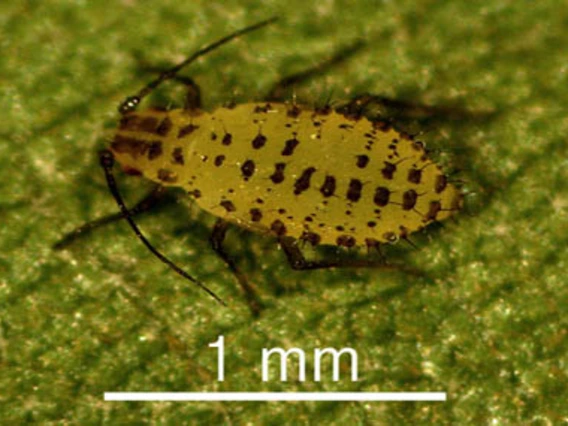
Oak Aphid
Oak aphid (Tuberculatus probably quercicola sp)
Soap spray if needed.
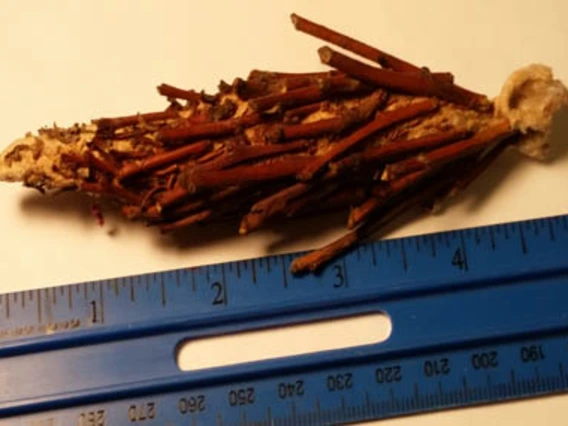
Bagworm
Bagworm
Hand remove.
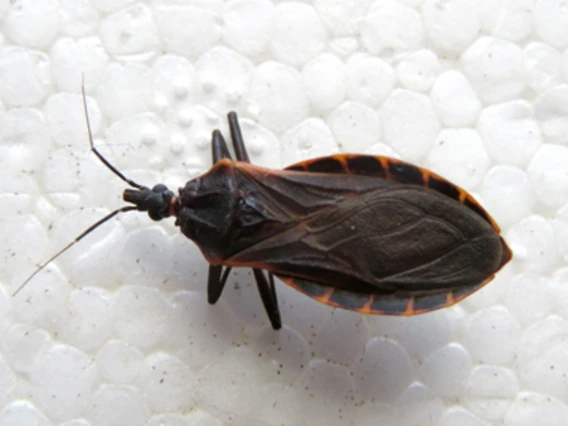
Conenose Bug
Conenose bug, aka kissing bug (Triatoma sp.)

Puss Caterpillar
Puss caterpillar (Megalopyge opercularis)
Larva of southern flannel moth; venemous.
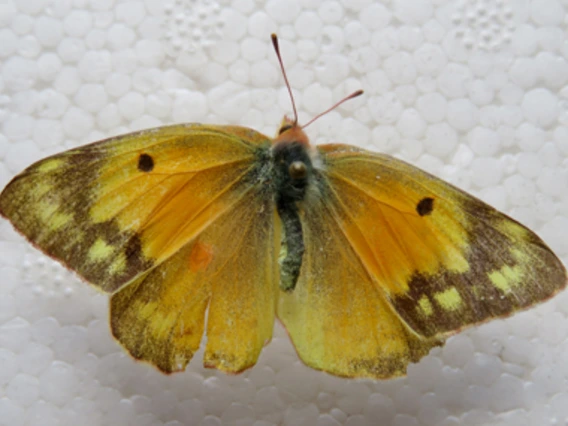
Orange Sulfur Butterfly
Orange sulfur, alfalfa butterfly (Megalopyge opercularis)
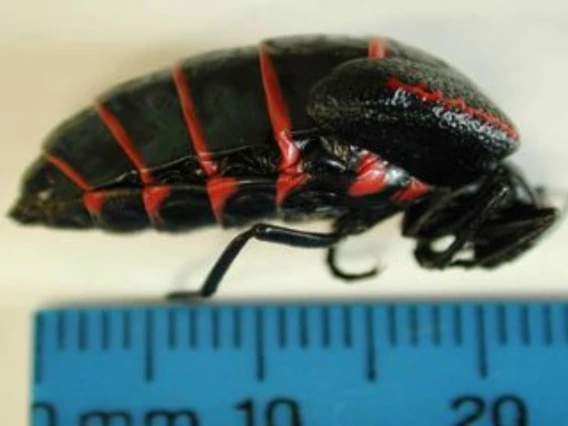
Blister Beetle
Blister beetle (Megetra, probably vittata sp.)
More Blister Beetle info
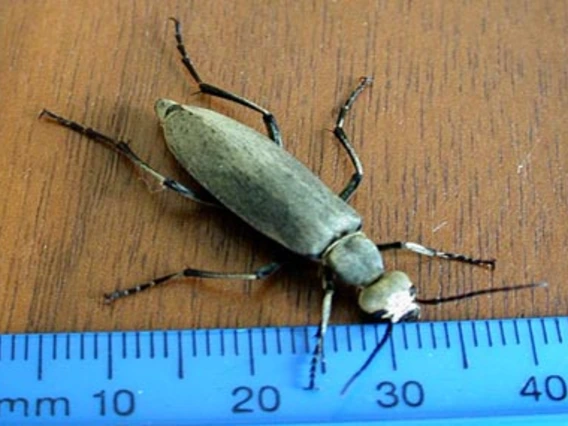
Blister Beetle
Blister beetle (Epicauta sp.)
More Blister Beetle info
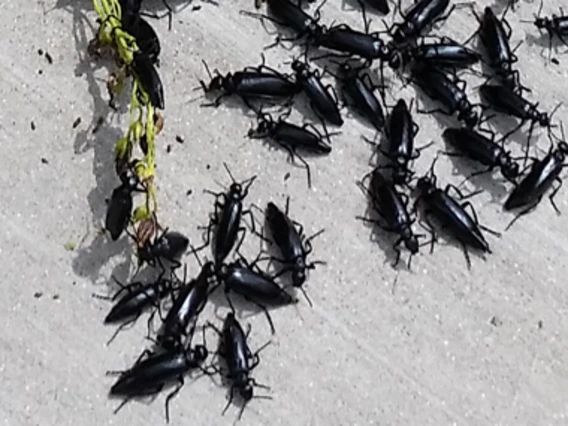
Blister Beetles
Blister beetles (Epicauta sp.)
More Blister Beetle info
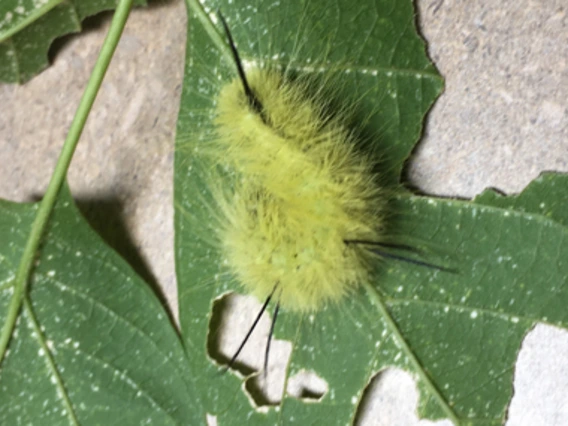
American Dagger Moth
American dagger moth caterpillar (Acronicta americana)
Found eating leaves on boxelder tree. May cause skin irritation if touched.
Photo by Myra Rothman
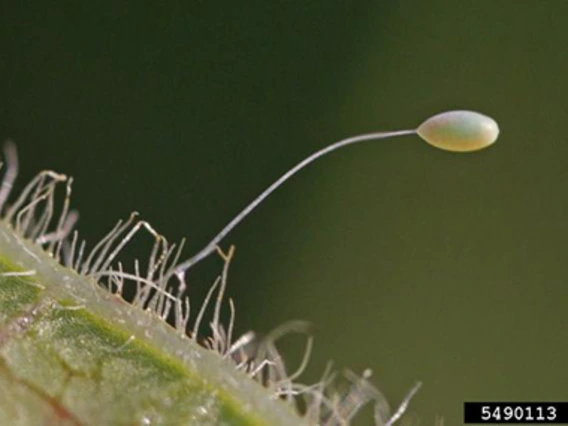
Lacewing Egg
Lacewing egg
Photo by David Cappaert, Michigan State University, Bugwood.org
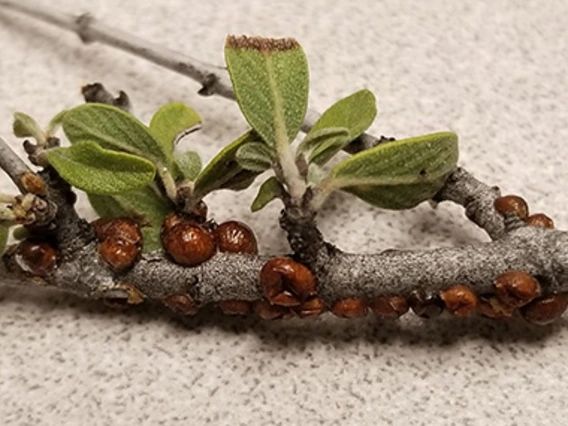
European Lecanium Scale
European Lecanium Scale (also called Plum or Apricot Scale)
Found on Ceanothus. Can produce lots of honeydew.
Photo by Mary Barnes
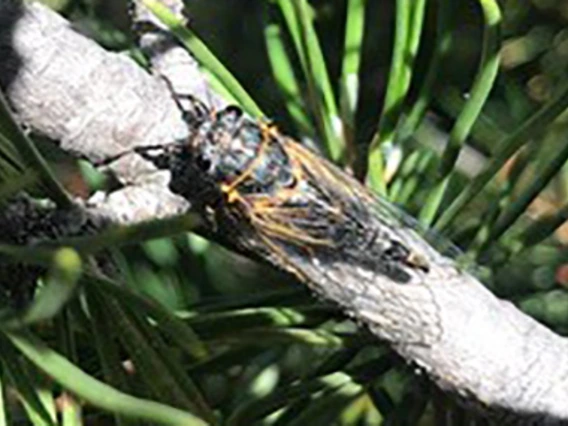
Putnam Cicada
Platypedia putnami - Makes unusual clicking sound. Native to mountain mahogany, Gambel oak and pinyon/juniper habitats. Also frequents maple, crab apple and honey locust trees.
Photo by Diane Thornbrugh
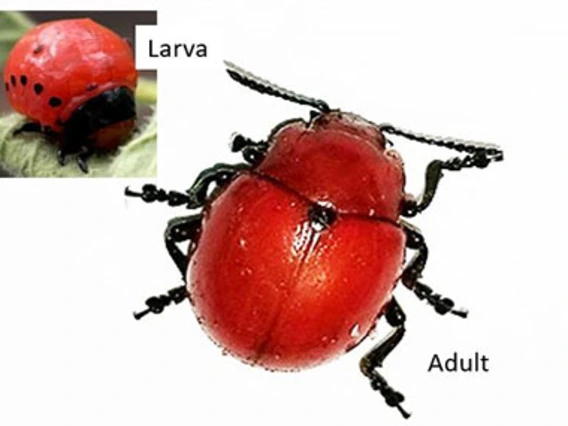
Reddish Potato Beetle
Leptinotarsa rubiginosa - Feeds on plants in Solonacea family, e.g. tomato, pepper, eggplant and some natives like jimsonweed, nightshade.
Larva photo by Leslie Thomas
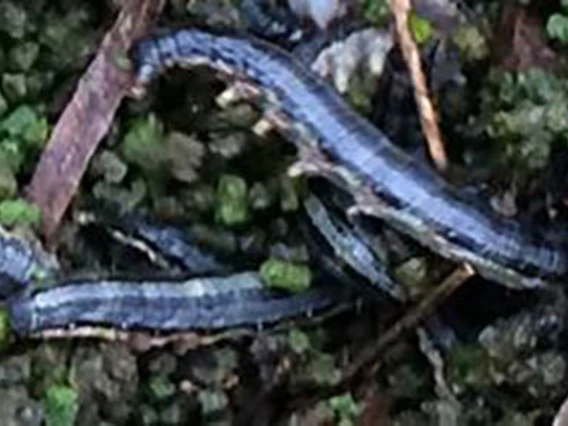
Mesquite Cutworm
Mesquite cutworms (caterpillars) can defoliate a mesquite tree.
More information
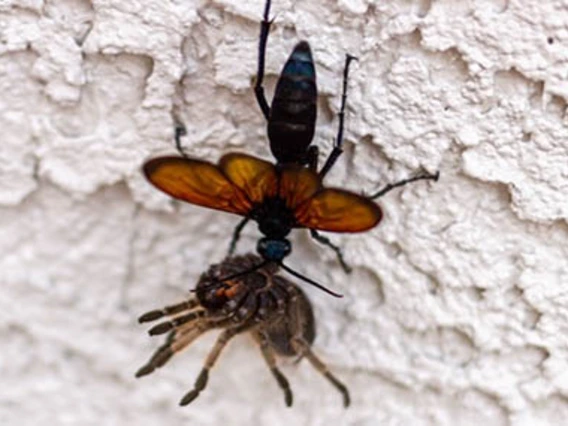
Tarantula Hawk with Prey
Tarantula hawks are wasps that prey on tarantulas. They are the largest members of the spider wasp family Pompilidae.
Photo by Debbie Mayne
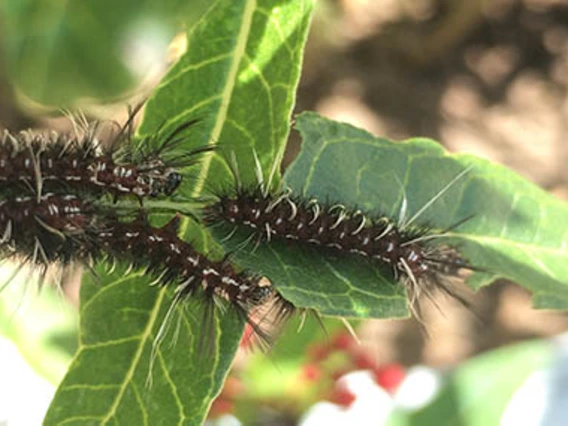
Tussock Caterpillars on Milkweed
Tussock moth caterpillar, Euchaetes antica, in the Tiger Moth family. They can defoliate a milkweed plant. Hand pick to remove; best to wear gloves.
Photo by Phil McNally
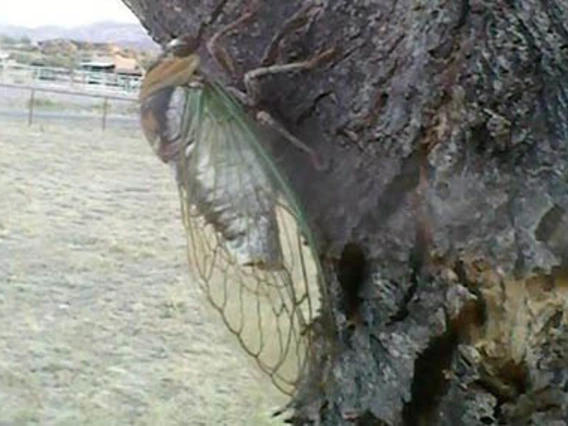
Great Western Flood Plain Cicada
Adult Grand Western Flood Plain Cicada, Megatibicen cultriformis. Likes willow and sycamore trees.
Photo by Tracy Wiederaenders
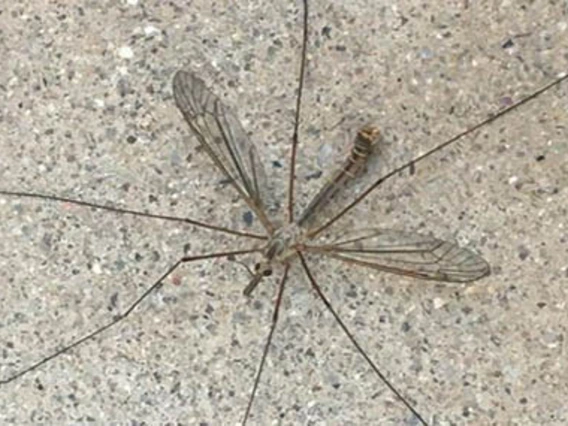
Crane Fly
Crane Fly - member of fly family Tipulidae .
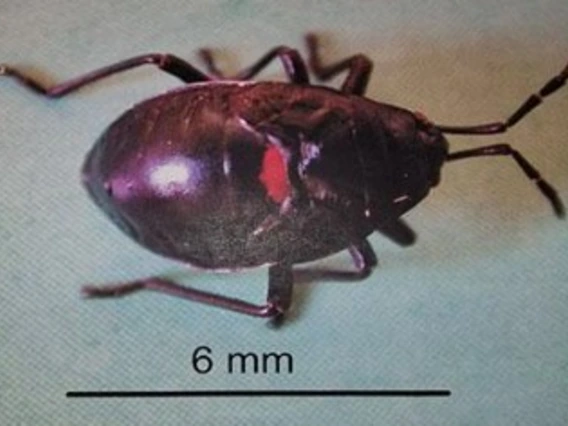
Largid Cinctus
Largid cinctus - one of the nymph stages of the bordered plant bug.
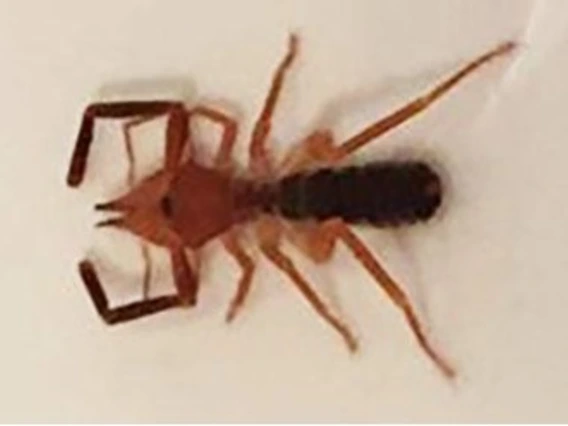
Wind Scorpion
Solpugid also known as wind scorpion, sun spider, camel spider
More information
Photo by Paul Beveridge
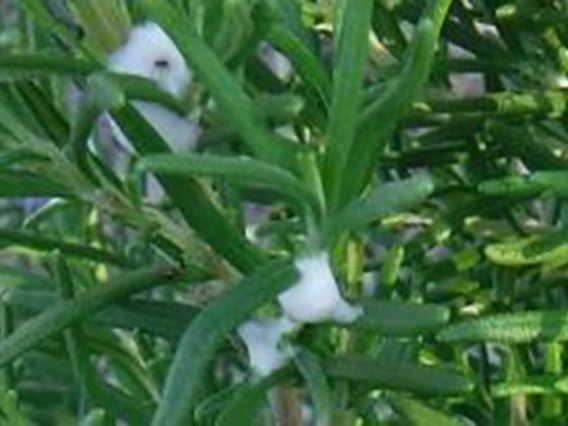
Spittlebug
Spittlebug Cercopoidea nymph is under foamy substance. Minimal damage to plant.; often found on rosemary and salvia plants. Remove with hard spray of water or gloved hand.
Photo by Tim Richard
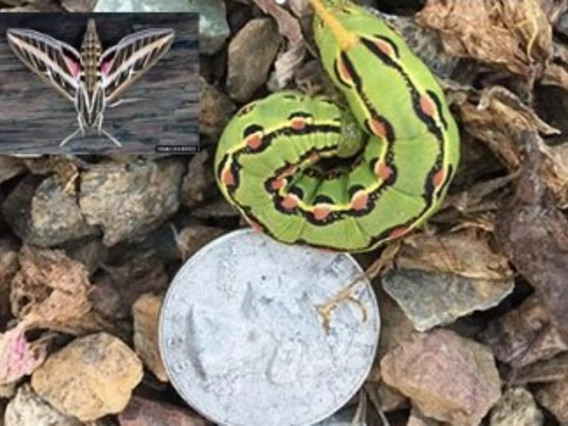
White-lined Sphinx Moth and Larva
White-lined Sphinx Moth, Hyles lineata
Larva photo by Sue Unverricht
Moth photo by Whitney Cranshaw, Colorado State University, Bugwood.org
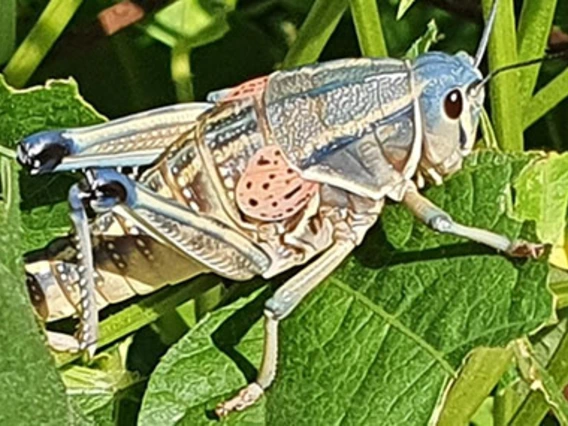
Plains Lubber Grasshopper
Plains Lubber Grasshopper, Brachystola magna
More information
Photo by Isaac Mpanga
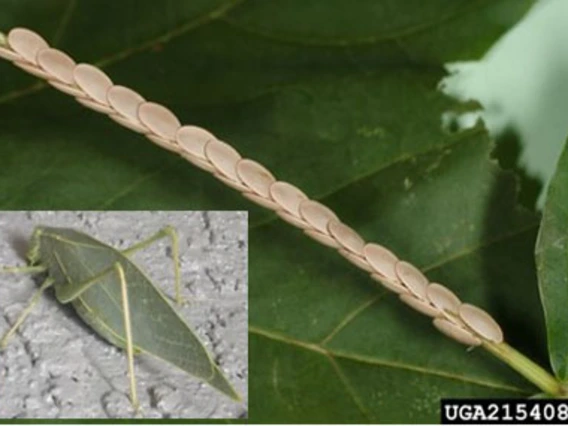
Katydid Eggs
Katydid Microcentrum rhombifolium. The adult eats leaves and insects such as aphids.
Katydid photo courtesy of Tracy Wiederaenders
Egg photo courtesy of Univ of Georgia / Michigan Stats Univ.
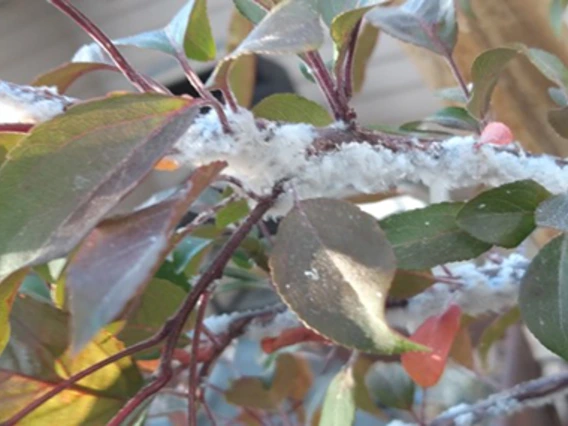
Woolly Apple Aphid
Natural predators such as ladybugs, lacewings, or hoverflies can help manage them. Neem oil or insecticidal soap may be used as spot treatment to help remove them.
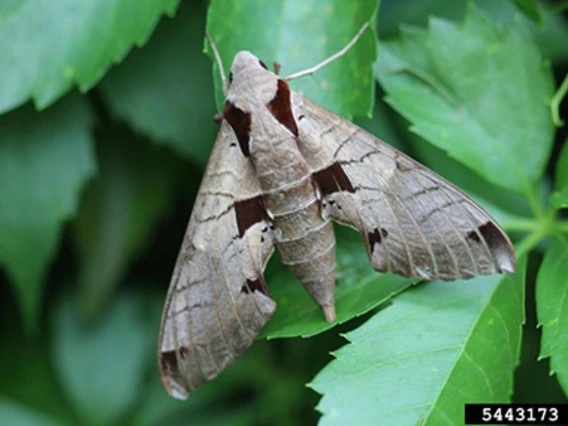
Achemon Sphinx Moth
Achemon sphinx moth feeds on grapes vines and Virginia creeper.
Photo by Whitney Cranshaw, Colorado State University, Bugwood.org
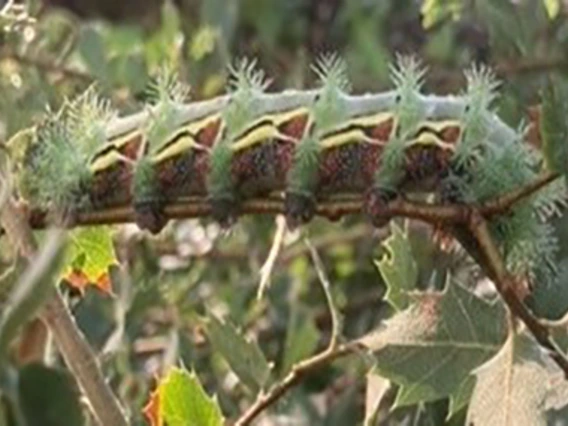
Automeris Cecrops Larva
Automeris cecrops (also named A. pamina), on Oak. This is the Yavapai County species of the Io moth.
Photo by Christine Lall.
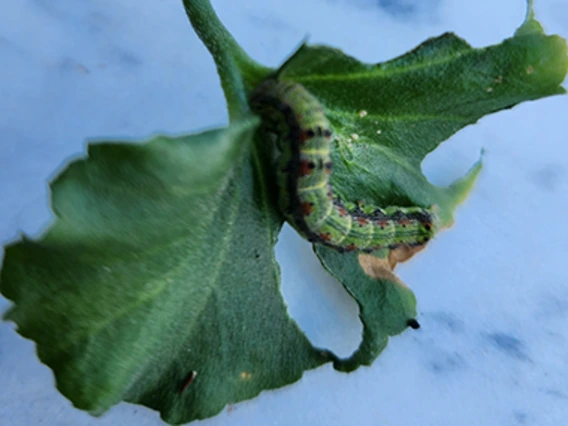
Tobacco Budworm
Tobacco budworm, larva of Chloridea virescens moth - eating geranium leaf.
Hand pick or Neem oil.
Photo by Mary Barnes
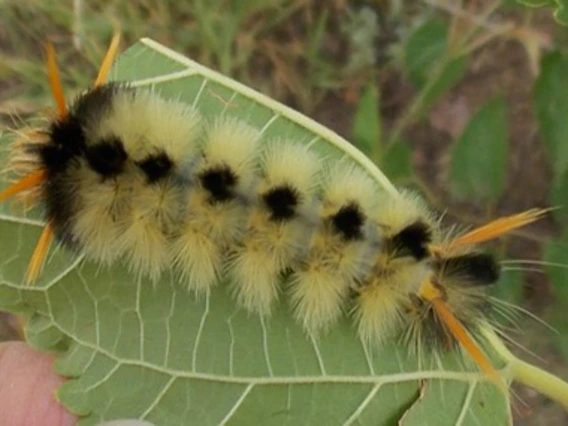
Davis' Tussock Moth Larva
Davis' Tussock moth larva, Halysidota Davisii, found on mulberry tree.
Photo by Tracy Wiederaenders
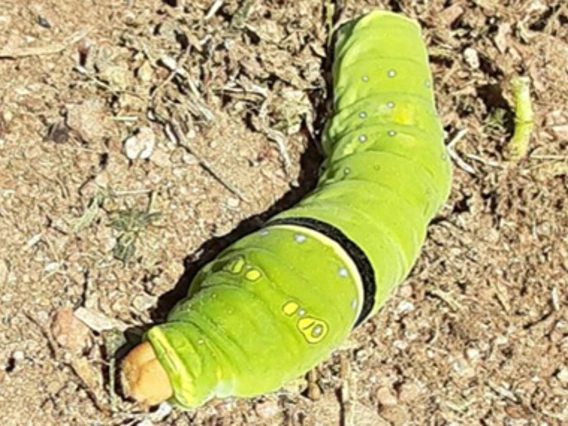
Tiger Swallowtail Butterfly Larva
Probably a Western Tiger Swallowtail (Papilio rutulus) because of the green underside vs. a Pale Swallowtail (Papilio eurymedon) which has a whitish underside.
Photo by Tracy Wiederaenders
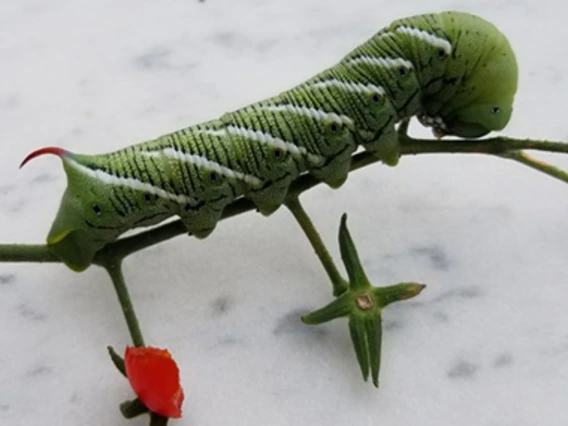
Tobacco Hornworm
Tobacco hornworm (Manduca sexta) on tomato plant.
Photo by Mary Barnes.
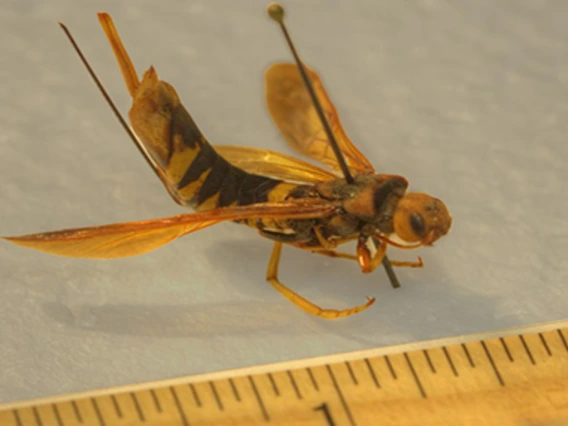
Pigeon Tremex Horntail
Pigeon Tremex horntail (Hymenoptera: Siricidae) - type of non-stinging wasp.
More information
Collected by C. Harris, photo by Steve Moody.
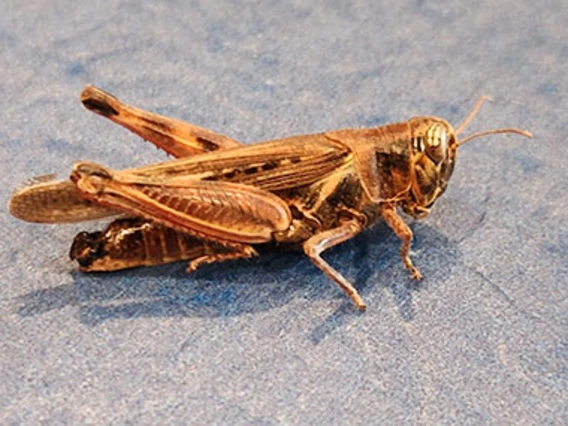
Spur-throated Grasshopper
Spur-throated grasshopper (Melanoplus spp.). 1 inch long; found abundantly in parts of Yavapai County in late fall of 2022. Probably changed color due to cold temperatures - they were still alive with night temperatures in the 20s and daytime temperatures in 50s.
Photo by Mary Barnes; identified by Shaku Nair
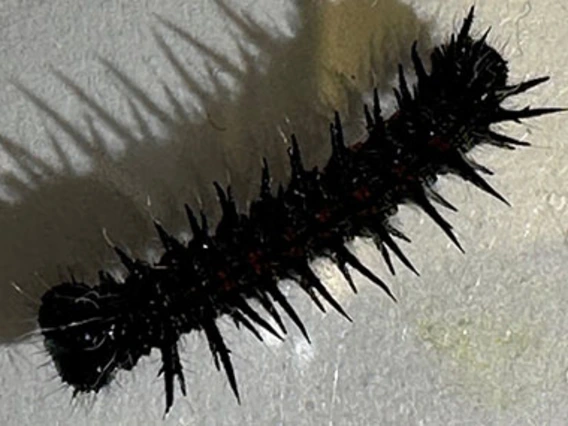
Mourning Cloak Caterpillar
Mourning cloak butterfly larva (Nymphalis antiopa). Photo by Jackie Decker.
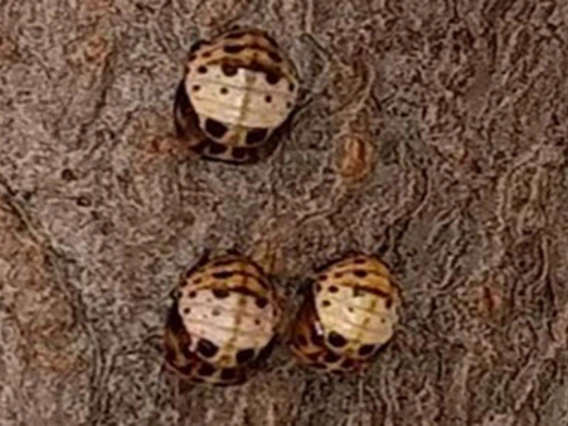
Lady Beetle Pupae
Lady beetle (aka lady bug) pupae. Photo by Richard Cole
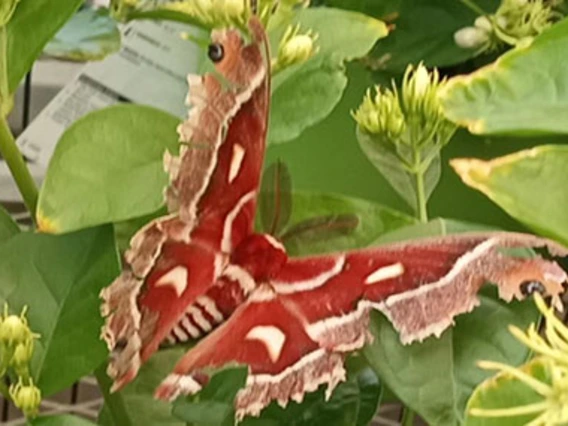
Orizaba Silkmoth
Rothschildia orizaba silkmoth. Found in Prescott.
Photo by Marcella Kruly.
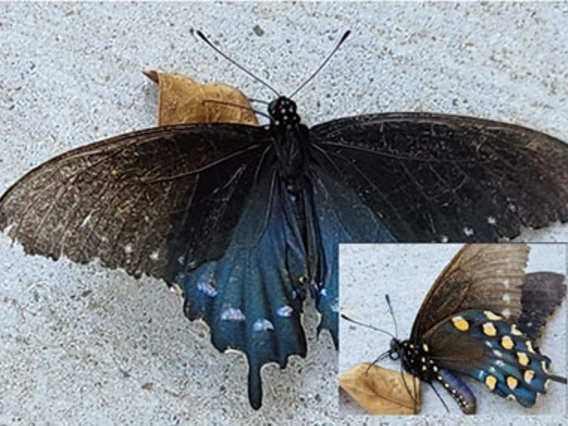
Pipeline Swallowtail
Battus philenor, Pipevine Swallowtail. Found in Chino Valley.
Photo by Mary Barnes.
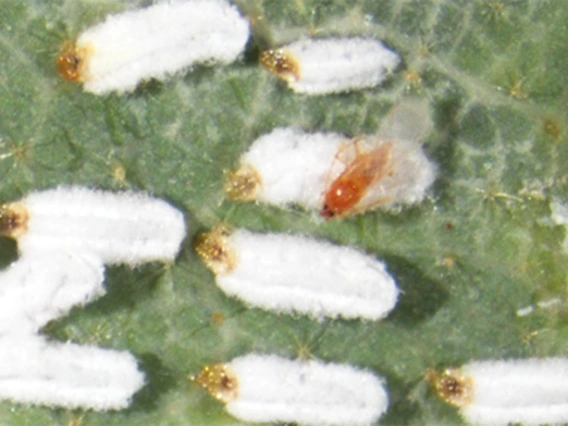
Quernaspis Quercus
Quernaspis quercus scale found on scrub oak in Williamson Valley. No management needed.
Photo by Matt Halldorson.
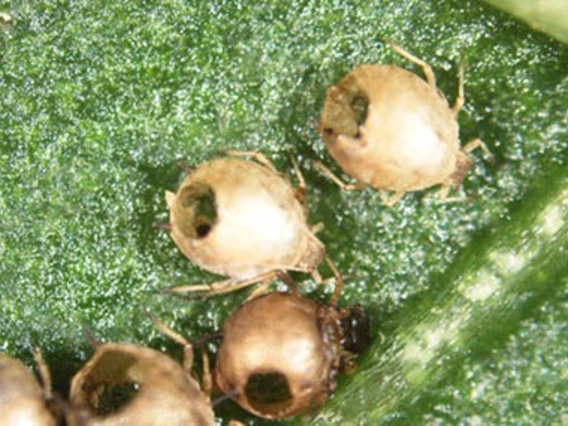
Parasitized and Mummified Aphids
Parasitoid wasps lay eggs on aphids and the developing wasp larvae feed inside the aphids. This kills the aphids; they turn into golden brown or tan colored “mummies". The adult wasps then break out of the mummies though exit holes.
Photo by Prescott Master Gardener Help Desk.
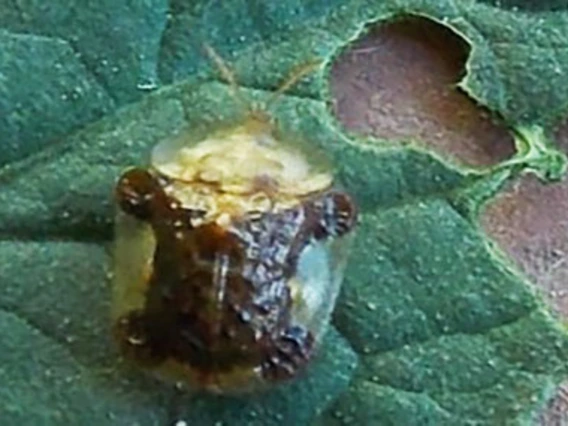
Clavate Tortoise Beetle
Clavate Tortoise Beetle, Helocassis clavata, found on tomato plant in Prescott.
Photo by Tracy Wiederaenders.
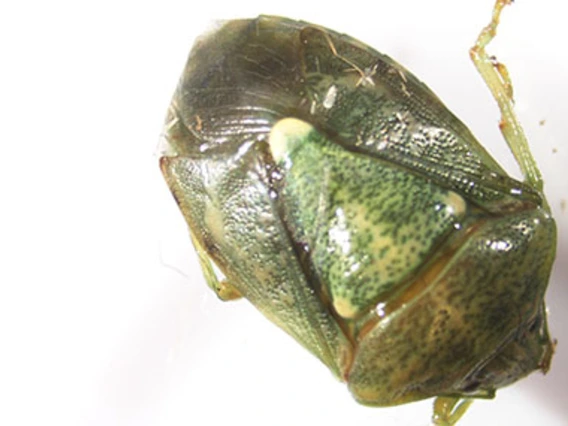
Juniper Stink Bug
Juniper Stink Bug, Banasa euchlora.
Photo source: Prescott Master Gardener Help Desk
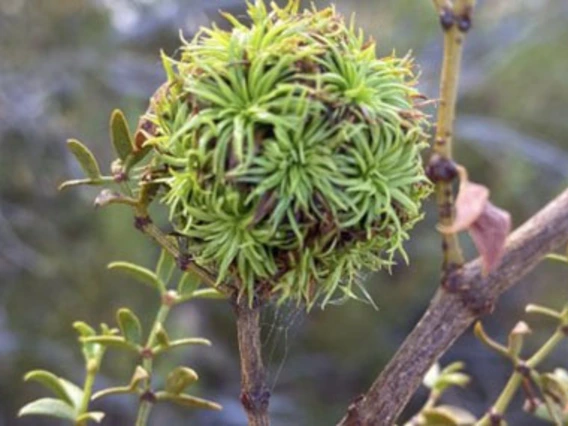
Creosote Stem Gall
Creosote stem gall, formed by a midge fly, Asphondylia sp.
Photo by Tracy Wiederaenders

